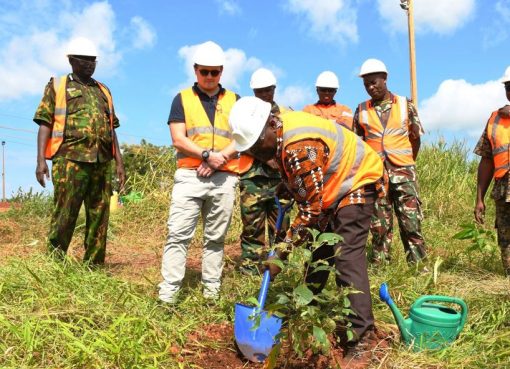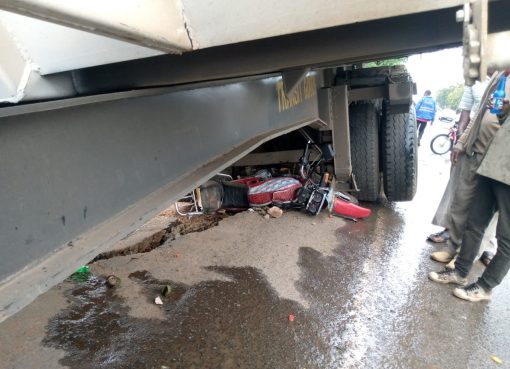The government through the State Department for Social Protection is set to introduce a Cash Transfer Programme to cushion residents in 23 drought stricken counties.
The programme which is set to commence next week will replace the food distribution exercise in a bid to cut transportation costs and enable the beneficiaries to buy food of their choice.

According to the Principal Secretary, State Department for Social Protection Nelson Marwa, the programme will go a long way in alleviating hunger and vulnerability by delivering regular unconditional cash during the on-going drought crisis.
Marwa noted that over 2.5 million people in vulnerable households across the 23 counties would be targeted. Out of the 23 counties, 13 counties have been severely hit by drought while 10 are moderately affected.
“The government is moving from food distribution to cash transfer in targeted vulnerable households from next week in a bid to cut costs involved in transportation. The targeting of the beneficiaries will be done and those in dire need of aid will benefit from the programme,” said Marwa.
The Sh558 million cash transfer programme dubbed Hunger Safety Net programme was piloted in four counties in the northern frontier in August this year and so far, over 100,000 families have benefitted from Sh5, 400 monthly.
Families from Turkana, Marsabit, Mandera and Wajir counties received the cash with the programme being expanded to cover the other affected counties.
Marwa was speaking in Sajiloni, Kajiado Central after distributing 200 bags of rice and 100 bags of beans to the locals. Kajiado County has received 3, 200 bags of rice and 820 bags of beans to be distributed to residents hard hit by drought in all the 7 sub-counties.
The most affected sub-counties are Kajiado West, Central and Mashuuru with over 500 households in dire need of aid.
The PS further revealed that the government had received 19,000 bags of rice from China which would be distributed to schools in all the 23 drought stricken counties in a bid to retain learners.
Apart from food donations, the PS revealed that the government had already embarked on a livestock off-take programme to cushion pastoralists against the effects of severe drought.
He noted that Sh450 million has been set aside for the programme which is being conducted in nine counties namely; Marsabit, Turkana, Isiolo, Kilifi, Wajir, Kitui, Samburu, Mandera and Lamu.
“We are partnering with Kenya Red Cross in food distribution and water interventions in 23 drought stricken counties. A livestock off-take programme has already commenced in 9 counties to cushion pastoralists and avert animal deaths,” said Marwa.
In her remarks, Kenya Red Cross Deputy Secretary General in charge of Programmes, Annette Msabeni noted that they were supporting the government in water trucking and purification to ensure access to clean water.
Msabeni revealed that a water purification plant had been installed at Enkorika dam in Kajiado Central and 500 households would benefit from clean drinking water.
While appreciating the interventions by the national government in cushioning residents from effects of drought, Kajiado Deputy Governor Martin Moshisho noted that the disaster was a humanitarian crisis that seeks multi-sectoral intervention from both levels of government as well as aid agencies.
Moshisho called for implementation of long -term solutions to the drought menace such as sinking of boreholes and installation of water purification plants.
The President in August this year declared the on-going drought a national disaster and set aside Sh1.2 billion to buy food supplies for Kenyans in 23 affected counties. Garissa, Isiolo, Kilifi, Kitui, Mandera, Marsabit, Samburu, Tana River and Wajir were listed as counties with high risk drought, hence requiring more intervention.
Baringo, Turkana, Kajiado, Kwale, Laikipia, Lamu, Makueni, Meru, Taita Taveta, Tharaka Nithi and West Pokot counties were classified as moderate while Embu, Narok and Nyeri marked as low risk areas.
By Rop Janet





